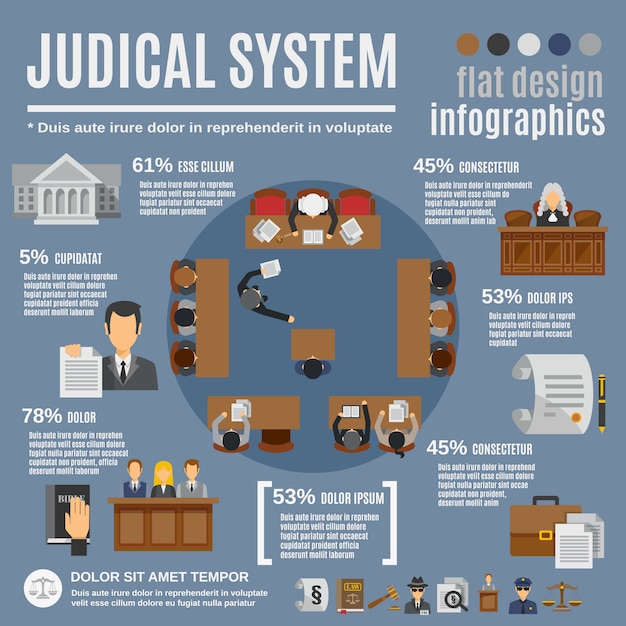A Comprehensive Guide To The Criminal Test: Step-By-Step Insights Into The Process
A Comprehensive Guide To The Criminal Test: Step-By-Step Insights Into The Process
Blog Article
Personnel Writer-Bigum Schmitt
When you step into a criminal trial, you could be amazed by the structured process that unfolds. All of it begins with court option, where possible jurors are scrutinized for biases via a technique called "voir dire." Afterwards, both sides offer their opening declarations, setting the stage for the evidence and testimonies to follow. You'll see exactly how the prosecution and protection develop their situations, but what occurs next can substantially impact the outcome. Comprehending these stages can expose the intricacies of justice, however there's even more to reveal about the critical moments that follow.
Jury Option Process
When it comes to the jury choice procedure, you're diving right into a critical stage of a criminal test. This procedure, often called "voir dire," includes questioning potential jurors to ensure they're impartial and capable of supplying a reasonable decision.
https://docs.google.com/spreadsheets/d/1tpQ9BKDye24_cXleajOXYq8UbnJpPQwHpiOmx-wXG1Y/edit?usp=drive_link 'll see both the prosecution and defense attorneys taking part proactively, each aiming to pick jurors that straighten with their case's story.
During voir dire, you'll see that attorneys ask concerns about jurors' histories, ideas, and experiences. Their goal is to determine any pre-existing biases that could influence a juror's decision. As a juror, you might feel a mix of anxiousness and interest, yet your honesty is necessary.
After questioning, attorneys can challenge details jurors for reason if they believe a juror can't continue to be unbiased. They can additionally use a minimal number of peremptory difficulties to disregard jurors without mentioning a factor.
Test Phases Explained
The phases of a criminal trial play a vital function in ensuring a reasonable and organized procedure.
You'll initially experience the opening declarations, where both the prosecution and defense describe their situations. This establishes the stage wherefore's to come.
Next off, the prosecution provides its proof and witnesses, aiming to show the defendant's sense of guilt beyond an affordable uncertainty. You'll see straight evaluation followed by interrogation, enabling both sides to test the presented info.
After the prosecution relaxes its situation, it's the defense's turn. They'll present their evidence and witnesses, usually focusing on creating reasonable question. You'll discover that the protection doesn't need to verify virtue; they just require to challenge the prosecution's instance.
Once both sides have actually presented their arguments, you'll listen to closing declarations, where each party summarizes their situation. This is critical as it enhances their positions prior to the jury ponders.
Throughout these phases, the judge makes certain that the trial abides by legal criteria and that the legal rights of both celebrations are shielded.
Understanding https://www.enterprise-tocsin.com/state/grand-jury-has-not-failed-indict-ole-miss-graduate-charged-murder-legal-filing-claims-633f50d4d3ec4 will help you appreciate the complexities involved in a criminal trial and the importance of each step in the quest of justice.
Verdict and Punishing
After all evidence has actually been presented and debates made, the jury or court provides a decision, determining the offender's guilt or virtue. If you belong to the jury, you'll mull over with your fellow jurors, reviewing the proof and your impressions. This procedure can take some time, as you'll want to make certain everyone settles on the decision based upon the facts.
As soon as a decision is reached, it's introduced in court. If the defendant is condemned, the next stage is punishing. This is when the judge determines the proper penalty. You may discover that various factors affect the sentence, such as the severity of the criminal offense, the accused's previous record, and any mitigating conditions.
The judge might enforce a series of sentences, from fines and community service to imprisonment. Occasionally, the defense or prosecution can offer debates regarding sentencing, trying to sway the court's choice.
If the defendant is found not guilty, they're acquitted, and no punishment follows. Remember that a guilty judgment can typically result in allures, where the offender might challenge the decision or the sentence enforced.
Final thought
In a criminal trial, you've seen just how important each action is, from court selection to the last verdict. You have actually followed the prosecution and defense as they build their cases, intending to encourage the court. Once deliberation concludes, the verdict establishes the outcome, and if the defendant is found guilty, the sentencing stage starts. Recognizing these procedures assists you appreciate the intricacies of the justice system and the importance of each function in making sure a reasonable test.
